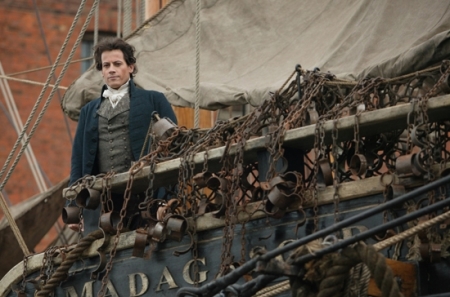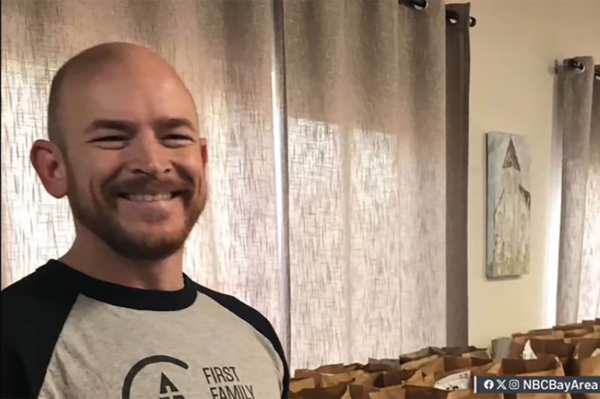In an Awful Election Year, Where Are Today's William Wilberforces?

In a presidential election year where Christians are struggling to find virtue in any candidate, pray for the return of statesmen like William Wilberforce. One of the greatest heroes in history, Wilberforce was a member of the British Parliament in the late eighteenth century. During this time period, he was the leading voice against the institution of slavery in the British Empire.
Wilberforce's mission to end slavery and emancipate slaves throughout the British Empire was daunting and clearly appeared impossible to most. Slavery was an institution that fueled the economy of much of the British Empire. For Wilberforce to stand against it was not only unpopular in many circles of his society but also appeared to be a hopeless cause. At times, he had allies who worked with him. At other times, he acted alone. At all times, he placed his trust and dependence upon God for the results of his labors.
The mission to end the institution of slavery has many clear parallels with the mission to end the abortion of unborn children. To justify slavery, proponents of it had to exercise twisted logic and proclaim that African slaves were not fully human and, thus, could be owned as property and treated as such by their masters. Likewise, to justify abortion, those who support such a practice must engage in the twisted dehumanization of the unborn.
It's a striking commonality of abortion and slavery: both issues deny the full humanity of a class of people in order to exploit this class. Furthermore, to justify such exploitation, past proponents of slavery and current proponents of abortion must deny the proclamations of the Declaration of Independence: all human beings are created equal and endowed by their Creator with the inalienable rights of life, liberty, and the pursuit of happiness.
William Wilberforce opposed slavery because he believed that every human being is made in the image of God. He refused to accept the status quo of English society, which accepted slavery as part of its culture. Wilberforce relied upon his unshakable faith in God, who values all human beings equally.
He persevered for fifty years in standing against this great evil, fighting against it with all of his might. Three days before his death in 1833, his efforts succeeded as the British Parliament formally ended slavery and emancipated all slaves within its jurisdiction.
Wilberforce is perhaps the greatest example of a political leader who remained true to principles founded firmly upon the truth of scripture. He is today honored throughout the world as a great man of principle who stood for the oppressed and the disenfranchised. His example is an inspiration to all who are standing firm in the battle for the sanctity of human life and to end the destruction of the unborn.
It appears that sometimes Hollywood really does get it, as the movie Amazing Grace exemplifies. Amazing Grace chronicles the story of William Wilberforce while touching on the relationship between Wilberforce and John Newton, a former captain of a slave ship who, after his conversion to Christianity, authored the famous hymn "Amazing Grace."
The movie deals primarily with the struggles of Wilberforce, who initially questioned whether he could be totally devoted to God and at the same time devote himself to the political war to abolish slavery. He concludes that, indeed, his devotion to Christ requires him to be committed to ending the ugly moral blight that slavery cast over the English empire.
The film gives little detail on the life of John Newton, what events transpired to bring about his dramatic change of heart and the writing of the beloved hymn. An understanding of the influence of John Newton on Wilberforce is crucial if we are to fully understand that it is only through God's amazing grace that individuals can achieve societal changes, which have eternal implications.
Nearly three hundred years ago, John Newton was born into a seafaring English family. His mother died when he was seven, and he left school at age eleven to join his father at sea. He quickly adopted the vulgar life of a seaman, and his life grew coarse and harsh. In talking about this time period, he stated, "I was capable of anything. I had not the least fear of God, nor the least sensibility of conscience. I was firmly persuaded that after death, I should merely cease to be."
John eventually locked arms with the skipper of a slave ship bound for West Africa. His captain befriended John and took him to his plantation where he lived with his wife, a beautiful and cruel African tribal princess. She grew jealous of her husband's friendship with Newton. When her husband went to sea and left John at the plantation due to an illness, she seized her opportunity. Her husband's ship was barely over the horizon when she apprehended John and threw him into a pigsty. She temporarily blinded him and left him in a delirious state to die.
Though kept in chains in a cage like an animal, he did not die. When word spread through the country that a black woman was keeping a white slave, many came to observe and taunt him. They threw stones at John and mocked him in his misery. He would have starved to death except for black slaves waiting for a ship to take them to America, who shared their meager scraps of food with him.
After five years, Newton's captain friend returned but called him a liar when John told him how he had been treated. When they set sail, Newton was treated more harshly and allowed to eat only the entrails of animals butchered for the crew's mess. During this time, he was involved in the slave trade. Of this he said, "I never had the least scruple to its lawfulness."
As Newton became more entrenched in the slave trade, he became a decadent blasphemer and mocker of faith. He eventually became the captain of his own slave ship — transporting thousands of black slaves to the plantations where they were exploited, tortured, and even killed for economic gain. Thousands of these humans never completed the initial voyage, as they died in wretched conditions on the slave ship that were unfit for animals.
On one voyage, Newton's ship crashed upon shoreline rocks. Newton was despondent and cried out to the God whom he had ignored his entire life. He was amazed that God's mercy remained on him after a life of hostile indifference to the gospel. He said of this: "My prayer was like the cry of ravens, which yet the Lord does not disdain to hear."
Newton was miraculously rescued and went back to England to reflect upon the mercies of God in his life. He fell under the influence of Methodist preacher George Whitefield, a compatriot of John Wesley, and entered into a new life with Christ. His years in the slave trade became a regretted past.
In the movie, John Newton talks of his slave trading days to his friend Wilberforce with intense contrition and brokenness, noting that he had "twenty thousand ghosts" haunting him — referring to the twenty thousand slaves he had tortured in his ships over the years. Physically blind at this time, he references to Wilberforce the words he had penned in his hymn: "I was blind, but now I see." Only now did Newton experience the truth of those precious words.
Newton died two days short of Christmas 1807 at the age of eighty-two. On his deathbed he proclaimed, "I commit my soul to my gracious God and Savior, who mercifully spared and preserved me when I was an apostate, a blasphemer, and an infidel and delivered me from that state on the coast of Africa into which my obstinate wickedness had plunged me."
Newton's life impacted the life of William Wilberforce who, in turn, impacted the entire world by his devotion to the claims of Christ. The true message of the lives of both Newton and Wilberforce tells us that none of us, as fallen individuals, have the capacity to impact the world for eternal good, but each of us can make an eternal impact when we experience God's true amazing grace offered free to all who will accept it.
As in Wilberforce's time, we live in a society today where life is cheapened and degraded. Sensuality and pleasure are readily available but don't bring happiness, while the value of human life is at an all-time low. One out of every three pregnancies is aborted today for convenience, and the death toll of the unborn killed continues to mount at a rate of over one million a year.
Where are the William Wilberforces of our time to speak out? Clearly some public officials have been inspired by his life and the recent film. We all need a dose of that amazing grace which transformed the lives of William Wilberforce and John Newton. This is a grace undeserved but offered freely to those who will accept it.
While it is free, it is not cheap. It does not allow one to live a life of callous indifference to the plight of others. Rather, when experienced, it transforms and empowers us to live our lives as change agents for the eternal kingdom coming — which will end, once and for all, the oppression and killing of innocents across the globe.
These two men changed the world because of amazing experiences with God. May we all experience this grace every day in our own lives, so we can also change our nation and the world. Give me more of that amazing grace!






















